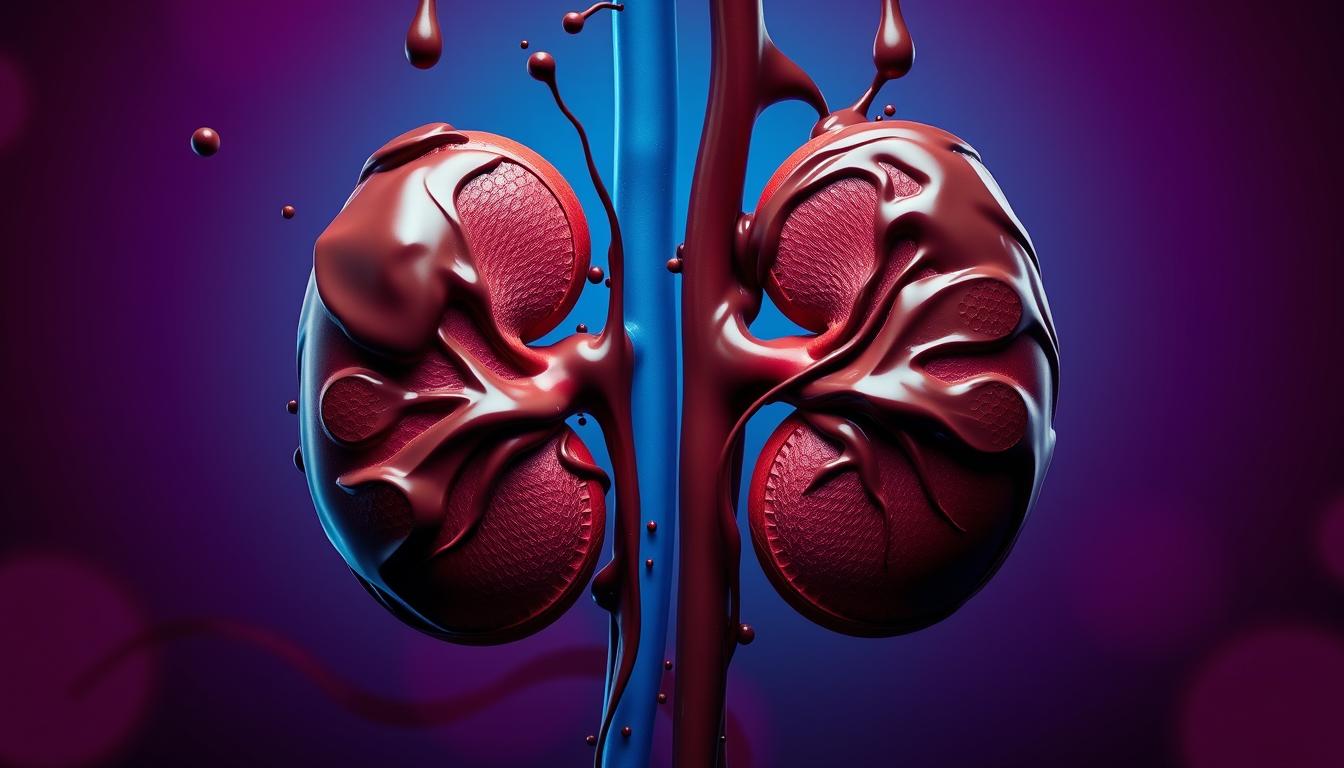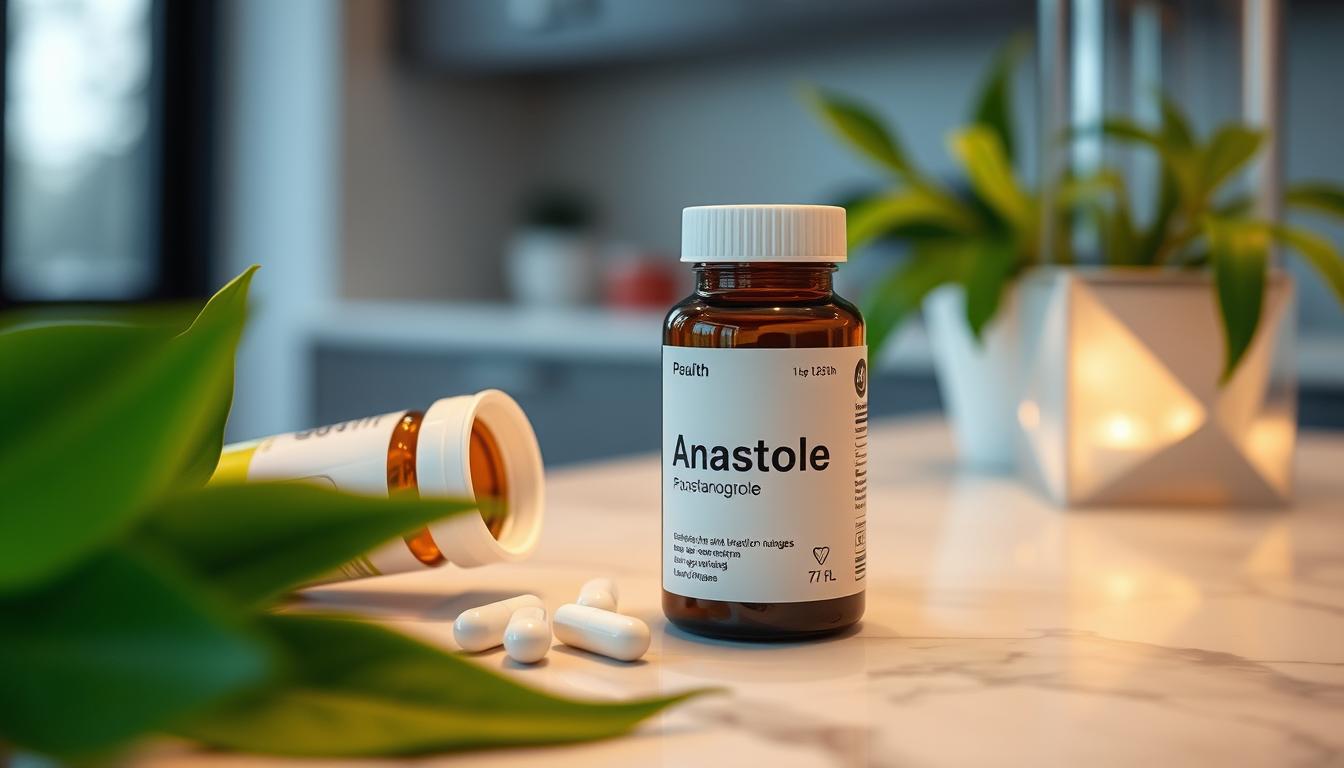Chocolate is a favorite treat for many. It’s also a topic of interest for its health effects. This guide explores how chocolate, especially dark and milk, impacts kidney health.

Key Takeaways
- Chocolate has compounds that can affect kidney health, both good and bad.
- Dark chocolate, eaten in small amounts, might help kidneys because of its antioxidants.
- Milk and white chocolate have more sugar and fat. This can be hard on the kidneys.
- People with kidney disease should talk to their doctor about eating chocolate.
- Choosing the right chocolate and eating the right amount can help keep the kidneys healthy.
The health benefits of chocolate
Chocolate is prepared from cocoa beans that contain a high volume of cocoa flavanols, natural compounds with several beneficial effects on health. Including a small amount of chocolate in your diet can thus be useful if it’s also approved by your physician. At the same time, chocolate consumption needs to be in moderation.
It depends on the type of chocolate one consumes. The low-quality ones, containing too much sugar, milk, and additives, are not healthy. In return, high-quality dark chocolate with at least 85% cocoa may provide positive effects, even for people with certain health conditions.
Studies have shown that dark chocolate has neuroprotective properties, anti-inflammatory effects, and is heart-healthy. It can also help with the management of some health issues, such as complications related to kidney disease. Consuming the right chocolate in small amounts can help support your overall health.
Understanding the Relationship Between Chocolate and Kidney Health
Chocolate and kidney health have a deep connection. This connection involves special chemicals in chocolate. These chemicals can affect how well the kidneys work. Know more about Keto Cream Cheese Frosting
Chemical Compounds in Chocolate
Chocolate is full of flavonoids and theobromine. These are important for research. They can change how kidneys handle waste in our bodies.
Basic Kidney Functions and Filtration
Kidneys filter our blood and remove waste. They keep our body’s fluids balanced. Chocolate’s compounds can affect this process.
Initial Impact Assessment
Chocolate’s link to kidney health is complex. Studies show it can both help and harm kidneys. Knowing this is key for those with kidney disease.
“The key to maintaining a healthy balance lies in moderation and understanding the unique interplay between chocolate and the kidneys.”
The Role of Dark Chocolate in Kidney Function
Dark chocolate is full of cocoa. It’s good for your kidneys. Its antioxidants help keep your kidneys working well.
Dark chocolate has flavonoids. These help lower stress and inflammation in your kidneys. Chronic inflammation can harm your kidneys.
Dark chocolate also helps your heart. A healthy heart means better blood flow to your kidneys. This is key for their function.
If you have kidney problems, talk to your doctor first. Dark chocolate has potassium. Too much can be bad for your kidneys.
| Nutrient | Dark Chocolate | Milk Chocolate | White Chocolate |
|---|---|---|---|
| Antioxidants | High | Moderate | Low |
| Potassium (mg/100g) | 228 | 158 | 58 |
Dark chocolate can be good for your kidneys. It’s tasty and helps your kidneys stay healthy.
Potassium Content in Different Types of Chocolate
Chocolate lovers, beware! The potassium in chocolate can affect your kidneys. Let’s look at how much potassium is in each type of chocolate.
Dark Chocolate Potassium Levels
Dark chocolate is known for its deep flavor. It’s also a good source of potassium. A small piece of dark chocolate has about 160 milligrams of potassium.
But, if you have kidney problems, be careful. Eating too much dark chocolate can raise potassium levels. This might make kidney issues worse.
Milk Chocolate vs. White Chocolate Comparison
Milk and white chocolate have less potassium than dark chocolate. Milk chocolate has about 50 milligrams of potassium per ounce. White chocolate has only 10 milligrams.
This makes milk and white chocolate safer for people with kidney problems. They have less potassium, which is better for them.
Safe Consumption Amounts
| Chocolate Type | Potassium Content (per 1 oz serving) | Safe Consumption Amounts for Kidney Health |
|---|---|---|
| Dark Chocolate | 160 mg | Moderation is key; individuals with kidney issues should limit intake to 1-2 servings per week. |
| Milk Chocolate | 50 mg | Individuals with kidney concerns can safely enjoy 1-2 servings per day, as part of a balanced diet. |
| White Chocolate | 10 mg | White chocolate is a low-potassium option, and individuals with kidney issues can generally consume it without significant risk, in moderation. |
How Chocolate Affects The Kidneys: Direct Impact Analysis
Chocolate is a favorite treat for many. But, it can also affect kidney function. The chocolate kidney effects are being studied a lot. It’s important to know how cocoa impact and renal function are connected to our health.
Chocolate can raise blood pressure. This is bad for the kidneys. The flavanols in cocoa might help control blood pressure. This is good for the kidneys.
The kidneys filter blood better with chocolate. Cocoa’s polyphenols help remove bad stuff. This is good for the kidneys.
“Moderate chocolate consumption can have a positive impact on kidney function, provided it is part of a balanced and healthy diet.”
But, chocolate’s effects on kidneys are complex. They depend on your health and how much chocolate you eat. Too much dark chocolate can be bad, especially for those with kidney problems.

In short, chocolate’s effects on the kidneys are complex. There are both good and bad sides. Knowing how chocolate affects kidneys helps us make better choices about what we eat.
Benefits of Moderate Chocolate Consumption for Kidney Health
Many love chocolate for its taste. But, it might also help your kidneys. Studies show chocolate can be good for your kidneys if you eat it in small amounts.
Antioxidant Properties
Dark chocolate is full of antioxidants. These fight off bad stuff in your body. They might help your kidneys work better.
Blood Pressure Regulation
Chocolate can also help with blood pressure. Dark chocolate has special compounds that make blood vessels better. This is good for your kidneys and blood pressure.
Anti-inflammatory Effects
Inflammation is bad for your kidneys. Dark chocolate has anti-inflammatory properties. This might help protect your kidneys from damage.
Eating chocolate in small amounts can be good for your kidneys. But, always talk to a doctor first. They can tell you how much chocolate is right for you.
Risks of Chocolate Consumption for Kidney Disease Patients
People with kidney disease should be careful about eating chocolate. Dark chocolate has a lot of potassium and phosphorus. These can be hard for kidneys to handle.
Too much potassium is bad for the kidneys. It can cause muscle weakness and heart problems. This is called hyperkalemia.
Phosphorus in chocolate is also a worry. It helps bones but can cause problems in the kidneys. This can lead to bone disease and heart issues.
Some kidney medicines might not work well with chocolate. This can cause bad side effects.
So, people with kidney disease should watch how much chocolate they eat. It’s best to talk to a doctor about what foods are safe for them.
https://www.youtube.com/watch?v=Tw1FS4DYcB8&pp=ygURI2Nob2NvbGF0ZWRpc2Vhc2U%3D
Chocolate Consumption Guidelines for People with Kidney Problems
For those with kidney issues, it’s important to watch how much chocolate they eat. Chocolate can be a fun treat, but it’s important to follow some rules. This way, it won’t hurt your kidneys. We’ll look at how much to eat and the best kinds of chocolate.
Recommended Portions
It’s important to control how much chocolate you eat if you have kidney problems. Doctors say only to have 1-2 ounces (30-60 grams) of kidney-friendly chocolate each day. This small amount can help you feel good without hurting your kidneys.
Best Types of Chocolate for Kidney Health
Not all chocolates are good for your kidneys. The best types of chocolate for kidney health are darker ones. They have less potassium and sodium.
Dark chocolate with at least 70% cacao is the safest choice. It has less of the bad stuff. Milk chocolate and white chocolate have more potassium and should be eaten carefully or not at all. By following these dietary guidelines, you can enjoy chocolate while keeping your kidneys healthy.
“Moderation is key when it comes to chocolate consumption for people with kidney problems. Stick to small, dark chocolate servings and check the nutritional information to ensure it aligns with your kidney-friendly diet.”
Managing Chocolate Cravings with Kidney Disease
People with kidney disease often struggle with chocolate cravings. But, there are ways to enjoy sweet treats without harming your kidneys. You can find healthy alternatives that are good for your kidneys.
One good idea is to eat smaller amounts of chocolate. This way, you can still enjoy chocolate but not too much. It helps keep your kidneys safe from too much sugar, fat, and sodium.
- Try dark chocolate, which has less sugar and more good stuff than milk chocolate.
- Look for sugar-free chocolate or dark chocolate with more cacao.
- Enjoy a small piece of chocolate with fresh berries or nuts for a tasty treat.
Looking for kidney-friendly alternatives can also help. You can use natural sweeteners like stevia or monk fruit in your desserts. Or, try fruit-based sweets like sorbet or baked apples with cinnamon.
| Healthy Chocolate Alternatives | Nutritional Benefits |
|---|---|
| Dark Chocolate (70% cacao or higher) | Lower in sugar, higher in antioxidants |
| Cacao Nibs | Rich in fiber, antioxidants, and healthy fats |
| Carob Powder | Caffeine-free, lower in fat and sugar than chocolate |
| Fruit-Based Desserts | Naturally sweet, high in fiber and vitamins |
Managing chocolate cravings with kidney disease takes time and trying new things. By controlling portions, finding kidney-friendly alternatives, and making smart choices, you can enjoy sweets while keeping your kidneys healthy.
Alternative Options for Chocolate Lovers with Kidney Issues
For people with kidney problems, chocolate might not be the best choice. But, there are many tasty alternatives. These options let you enjoy chocolate without harming your kidneys. Let’s look at some good choices and how to make recipes healthier.
Kidney-Friendly Chocolate Substitutes
- Carob powder: This sweet, cocoa-like powder is low in potassium and phosphorus. It’s perfect for baking and smoothies.
- Cocoa nibs: These raw cacao bits taste like chocolate but have less potassium and phosphorus.
- Cacao powder: It’s less processed than regular cocoa powder. This keeps more of its good stuff and tastes rich.
- Dark chocolate with a high cacao percentage (70% or more): These have some potassium but less phosphorus. Enjoy them in small amounts.
Recipe Modifications
Even with kidney disease, you can still enjoy chocolate treats. Just make a few changes. Use kidney-friendly chocolate substitutes and watch your portion sizes. Also, try recipes with chocolate alternatives like kidney-friendly recipes with dietary substitutions like carob, cocoa nibs, or high-cacao dark chocolate.
“Satisfying your chocolate cravings while maintaining a kidney-healthy diet is possible with a little creativity and experimentation.”
Conclusion
The link between chocolate and kidney health is complex. Dark chocolate might help with blood pressure and antioxidants. But, it also has potassium, which can be bad for those with kidney disease.
Knowing what’s in chocolate can help you choose wisely. Dark chocolate in small amounts might be okay for some. But, people with kidney issues should talk to their doctor first.
This guide aims to help you understand chocolate and kidney health. It’s about making choices that are good for you. Enjoying chocolate in a balanced way is key to keeping your kidneys healthy.
FAQ
How does chocolate affect the kidneys?
Chocolate’s impact on kidneys varies. It depends on the type and how much you eat. Dark chocolate has good stuff like flavonoids and theobromine. But, it can also be bad for kidneys, especially if you have health issues.
Is dark chocolate good for the kidneys?
Dark chocolate might help kidneys because it’s full of antioxidants. These can fight inflammation and help the heart. But, it has a lot of potassium. This is a problem for people with kidney disease.
How much potassium is in dark chocolate?
Dark chocolate has a lot of potassium. A small piece has 150-300 mg. This is a lot for kidneys that don’t work well.
Can people with kidney disease eat dark chocolate?
People with kidney disease should be careful with dark chocolate. It has a lot of potassium. Eating small amounts and watching your potassium is key to keeping kidneys healthy.
What are the risks of eating chocolate for people with kidney problems?
Eating chocolate can raise potassium levels in people with kidney issues. This is very dangerous. Chocolate also has phosphorus, which is bad for the kidneys too.
How can people with kidney issues satisfy their chocolate cravings?
If you have kidney problems, you can still enjoy chocolate. Eat small pieces of dark chocolate. Or try kidney-friendly treats like carob sweets. Always watch how much you eat.




